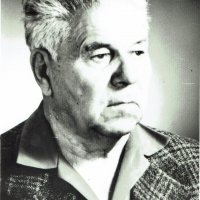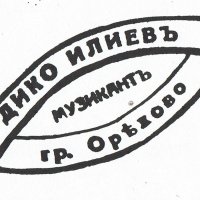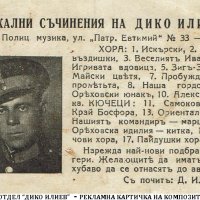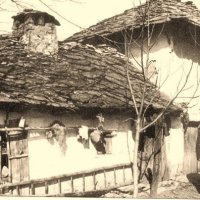About Diko Iliev
Diko Iliev was born on February 15 (1898). in the village of Karlukovo, Lukovitza district, in the family of Tsona and Ilia Dikovi. Here he is studying to the fourth unit. Already a little interested in music. He produces a willow whistle himself. When he was 11 years old he heard the sound of the musical instrument for the first time, and from that moment dreams to play it. In 1911 Diko Iliev became a musician student in the Military Wind Orchestra of the 16th Lovech Regiment in the town of Orhanie - present day Botevgrad. Then he is 13 years old. He starts studying the trombone, as the Fligor places are occupied. Already after the fifth month he shows skill and talent and is included to play in the orchestra. It is well known that little Diko writes on his blackboard notes of his first creative melody. The orchestra's conductor rigorously asks who wrote the notes, and if they can be deleted they can write them again. Diko Iliev admits, erases the written and re-applies the notes of the petholium. It gets deserved praise.
At the outbreak of the Balkan War (September 1912 - May 1913) and the Interwar Alliance (June - July 1913), Diko Iliev went to the front with the 16th Infantry Regiment of the 16th Infantry Regiment of Lovech After a brief peace period in October 1915, Bulgaria involved in the First World War. Diko Iliev must be fired after serving for 4 years as a musician, but he is obliged to remain in the regiment and go with him again on the battlefields. On the Serres Front, in 1917 he wrote his first horo for a brass band called "Iskarsko Horo." When the regiment is in Macedonia, Diko Iliev meets his father accidentally - a moment saved from an old picture. he returned to his native village of Karlukovo and in the spring of 1919 he attended exams at the Military School in Sofia.It is successfully presented with the school orchestra.This orchestra together with the Guards Music form the Symphonic Orchestra of the Sofia National Opera. his composition Diko Iliev plays in Perry "Carmen," "La Traviata," "Il Trovatore" and others.
In 1920 Diko Iliev founded a family. Together with his wife, Anastasia returns to his native country because the funds in the capital do not reach. After a short stay in the village of Karlukovo, he became a clerk in the village of Voyvodovo. From 1922 to 1930 he lived in the village of Bukyovtsi - the town of Moesia. She is engaged in agriculture, but does not interrupt with music. He plays with his beloved fligor at weddings, christenings, fairs and collections in Oryahovo and Beloslav. This is a period when Diko Iliev promotes the spirit music among the population, ignites the interest and the love for the brass musicians. He creates and manages wind orchestras in Bukyovtsi - 1928. (Mizia), Selanovtsi and Komarevo. He composes the people "Bukyovsko", "Elenino", "Grancharsko", "Happy Ivancho". They are melodious and easy to perform.
Before 1931 the folk composer came to Oryahovo. He has been a baritone musician at the 3-Girdarmer's Bands Band, housed in the city since 1929. Now he writes the works Zig-Zag, Rural Sighs, May Flowers, Oryahovska Idylia. In 1935, his daughter Alexander died. From the father's grief, the chorus "Alexandria.
From 1936 to 1938, Diko Iliev served in the Sofia Military Orchestra with the Captainmaster Ivan Kasabov. Then he returns again to Oryahovo. He plays in the military music and at the same time is the head of the restored 36th Kozloduy regiment. In these years he creates dozens of musical works, including the Loves of all "Danube Horo" (1937).
During the Second World War Diko Iliev was on the front with the soldiers of the 36th Infantry Regiment of Kozloduy, and the events reflected in his soul led to the composing of the musical composition "National Echo". After the war, Diko Iliev founded the Oryahov Professional Musicians Association. Organized 19 professional music groups. In 1948, he was awarded the title of officer and appointed the conductor of the regimental orchestra. Still composing. From this period, the march "Slivenci za Drava", which for many years Radio Sofia opens its program, is very famous.
Diko Iliev reached the rank of captain, he created children's music schools in Oryahovo (1956) and Mizia. After the dissolution of the regiment he was the conductor of the Oriahovski Brass Orchestra founded in 1957 at the Chitalishte. Retired in 1958
The musical heritage of Diko Iliev counts 56 folk people, 16 marchs, 7 wrists, 1 rhapsody, a number of city hatters. All of them are performed by wind orchestras. They are played by many professional and amateur ensembles. His works can be perceived as folk music because his work is a synthesis of folk and modern sound.
Historical Museum Oryahovo
Dr. Evgenia Naidenova



